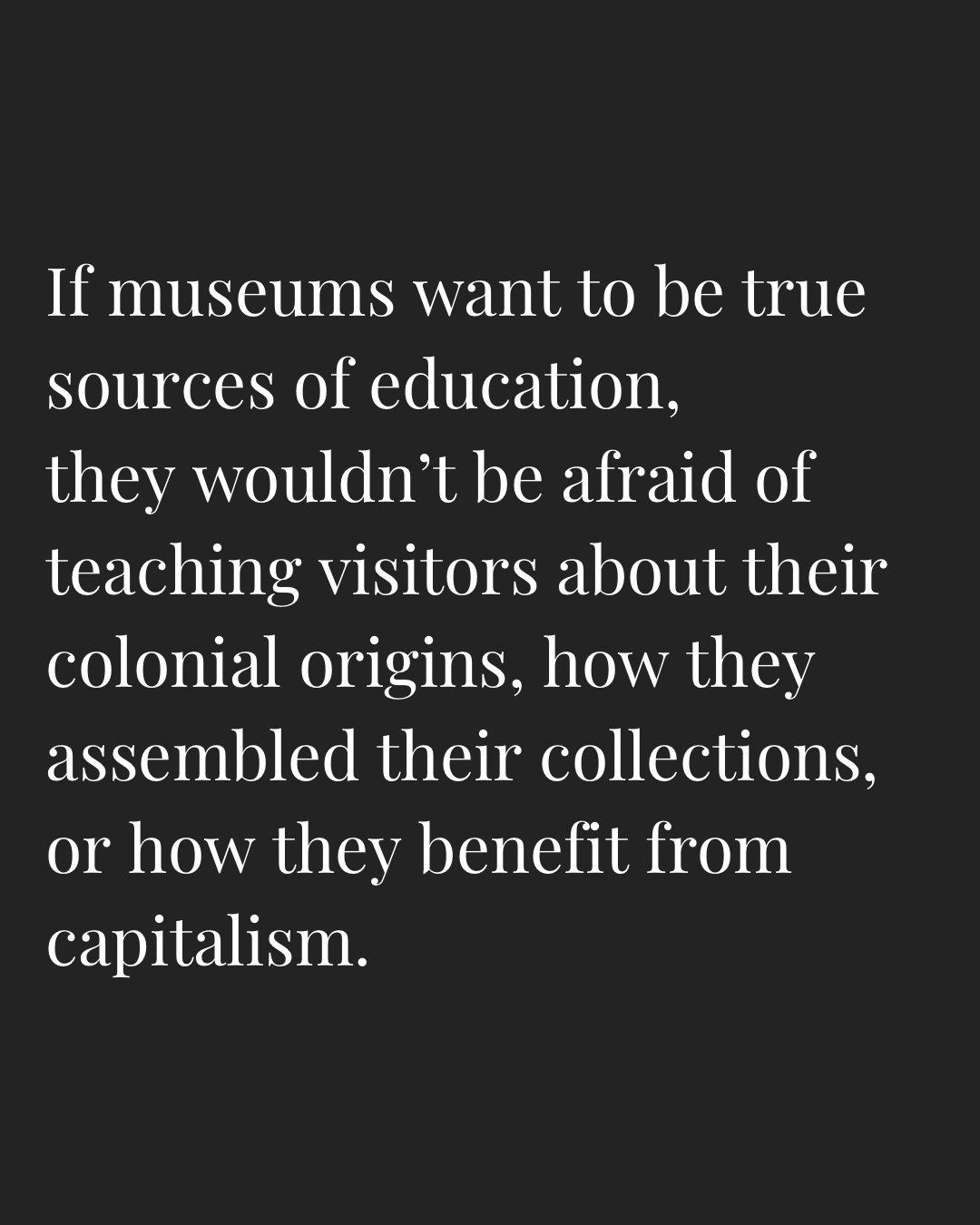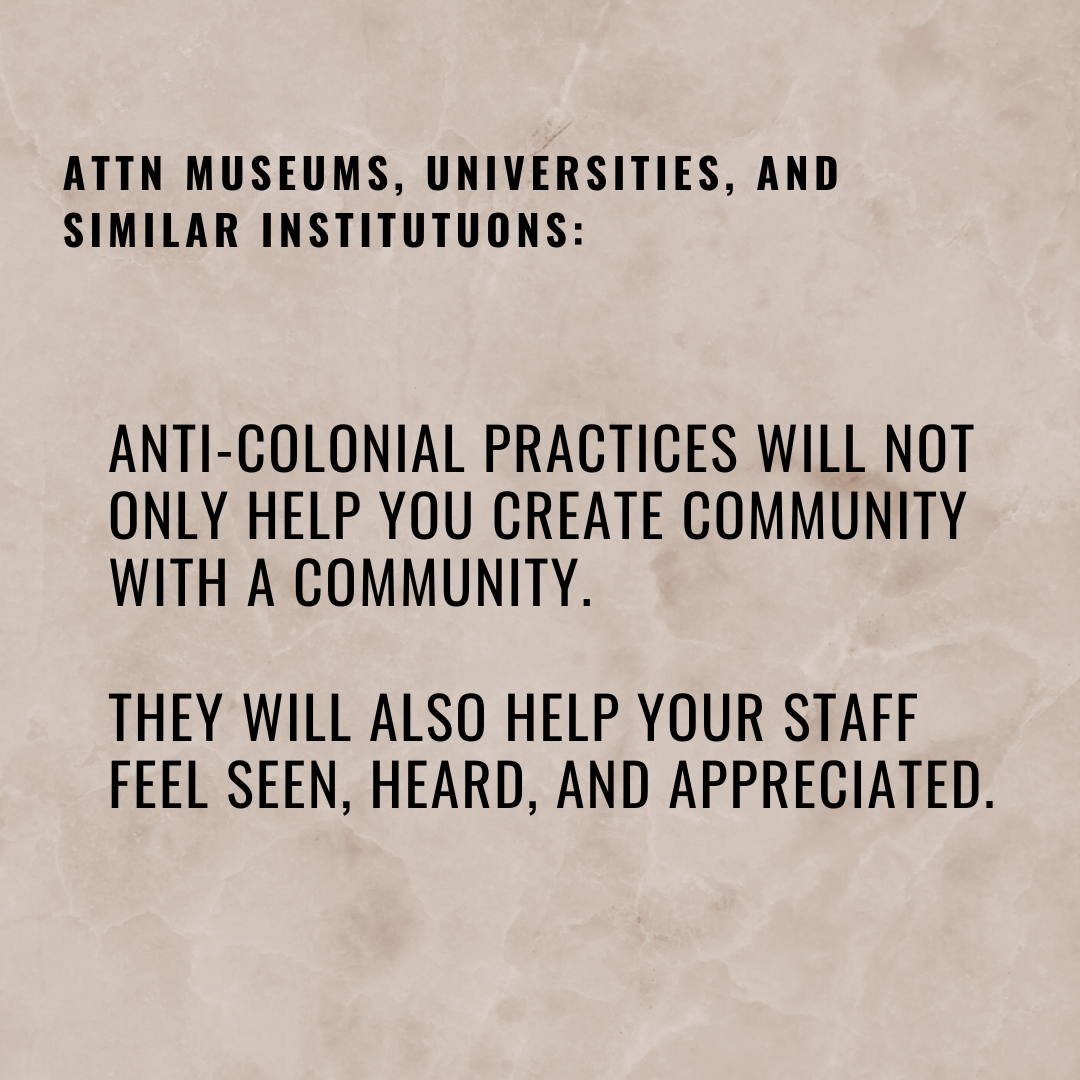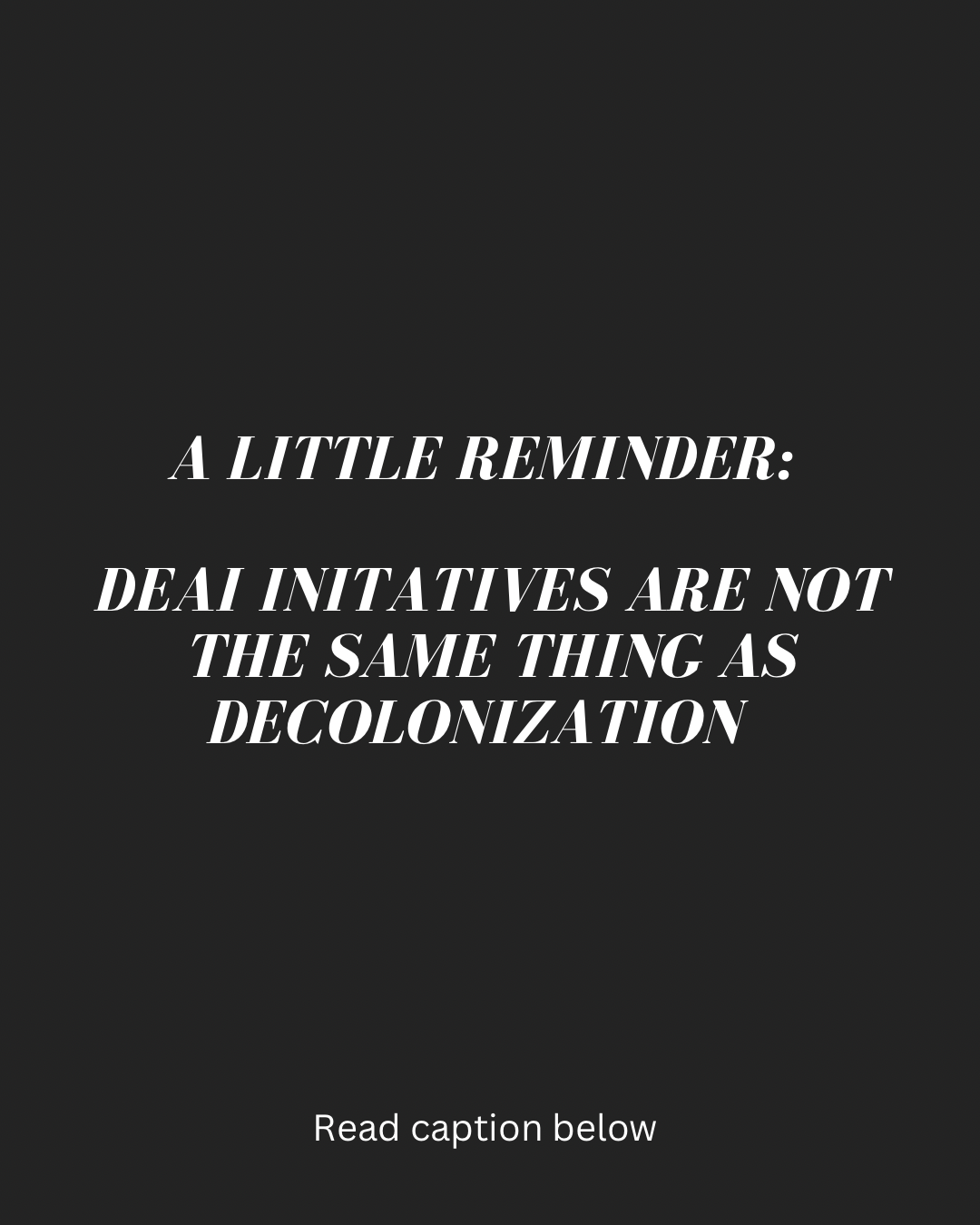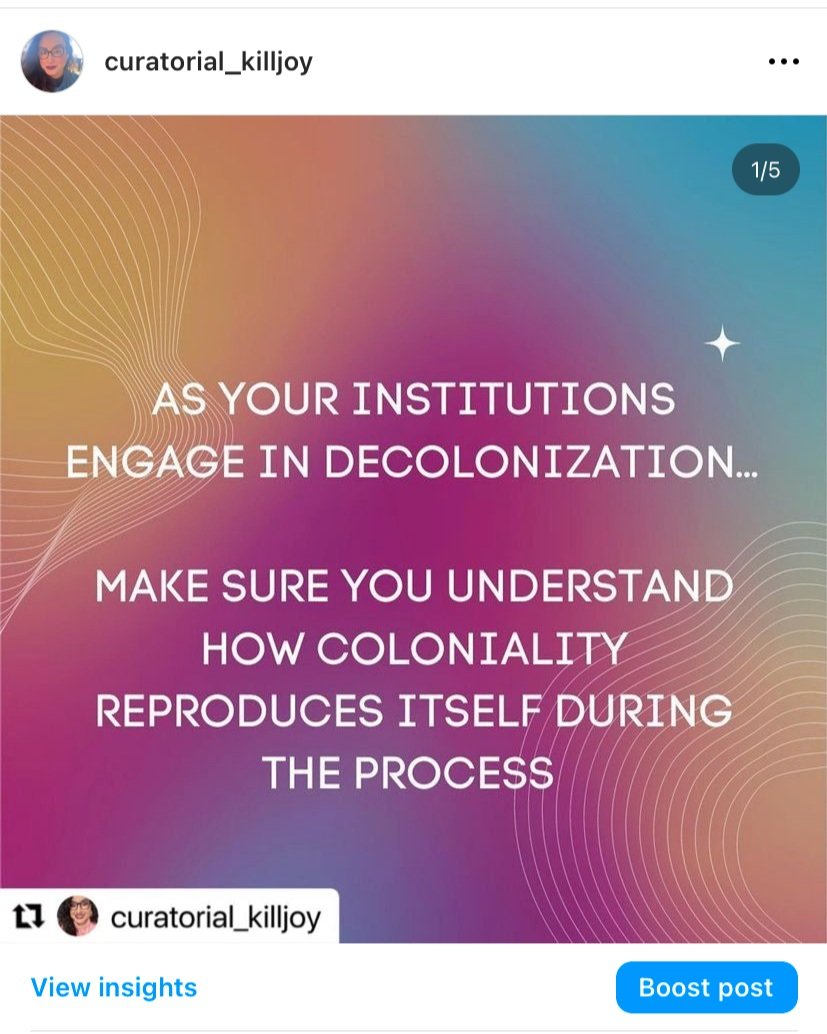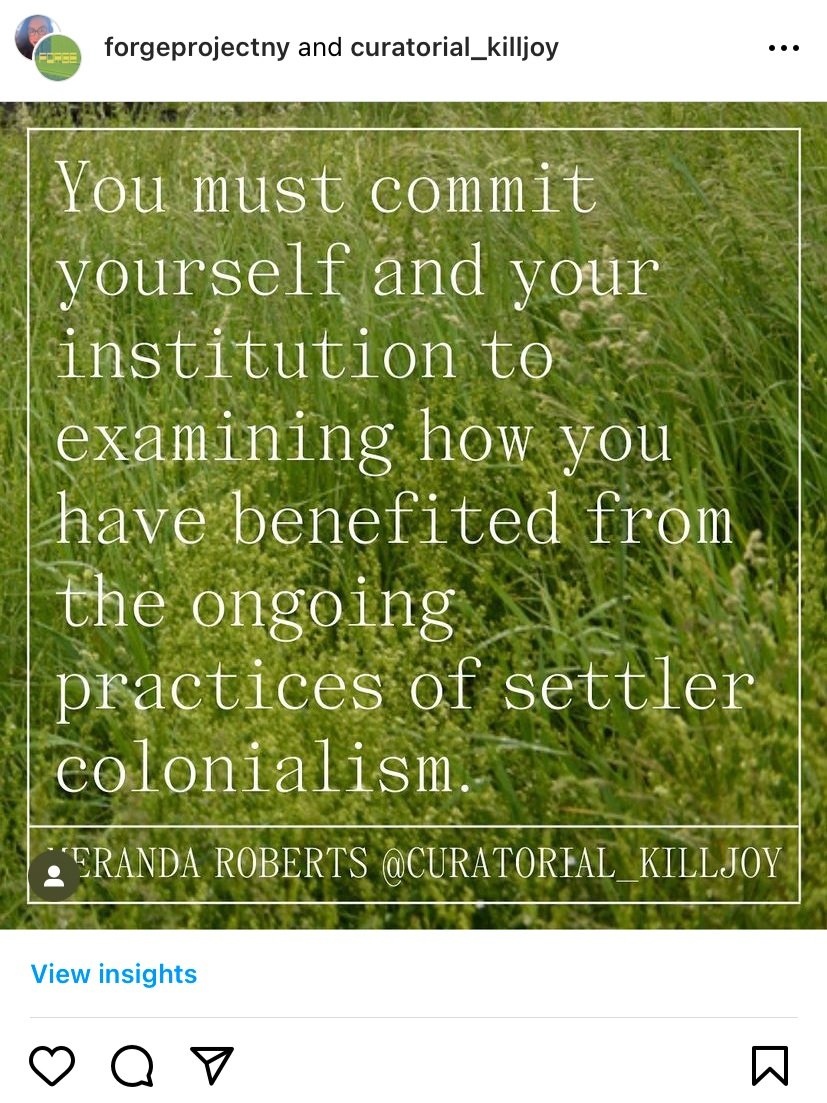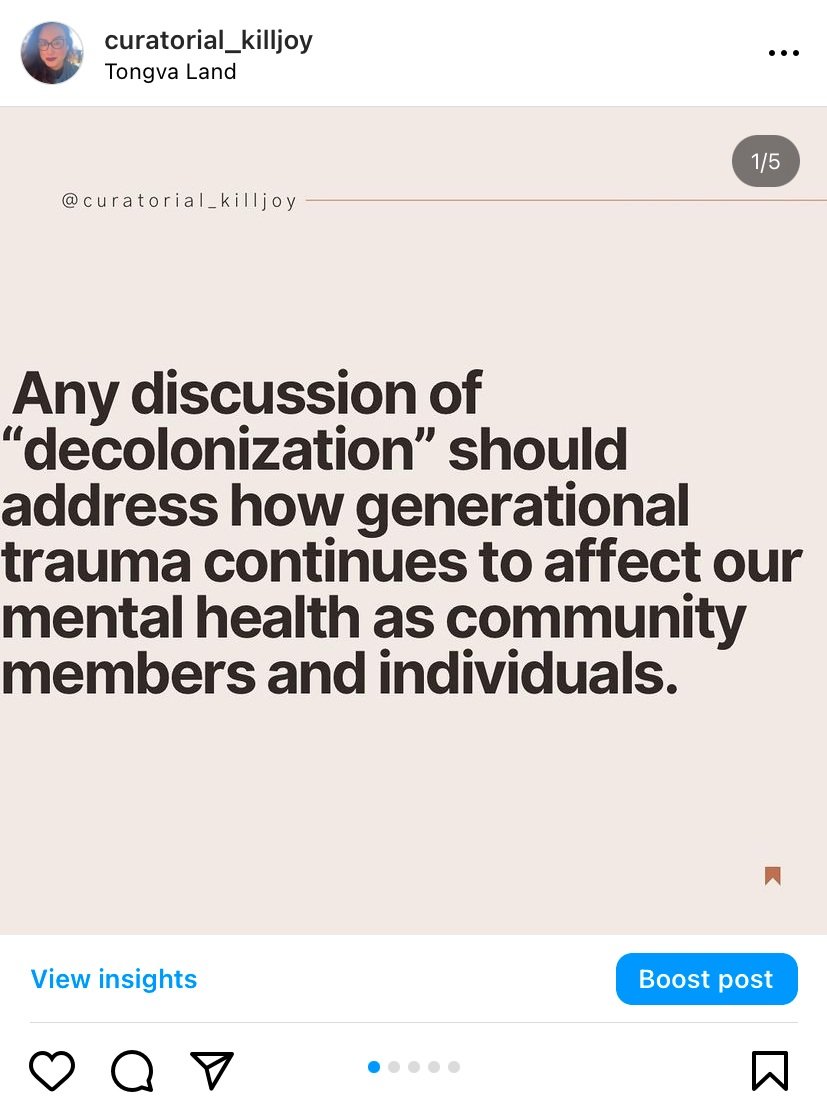The importance of adopting anti-colonial practices:
Based on my first-hand experience as a Native American woman working in museums, I have come to the realization that achieving complete decolonization within these institutions, as well as other colonial entities, is an unattainable goal. This is primarily due to the deeply ingrained influence of settler colonial ideology that pervades our society, particularly within the context of the United States. Consequently, when museums approach Indigenous groups for collaboration, they often do so with the assumption that Indigenous groups will readily embrace the opportunity, expressing gratitude and fulfilling the institution’s requests without requiring significant internal transformation from the institution itself.
However, what is often overlooked is that these institutions, and the non-Indigenous individuals working within them, my struggle to fully understand and respect Indigenous requests beyond the confines of Western education and ideological practices. As a result, Indigenous communities find themselves in the position of having to educate the institution and its staff about the painful histories they have endured, including forced removal from their homelands, the generational trauma resulting from the loss of culturally significant items (whether through sale or theft), and the ongoing challenges they face as a result of these historical practices.
Furthermore, institutions frequently fail to recognize the emotional and mental toll that this kind of work can have on collaborators, including both Indigenous community members and the Indigenous staff members they may have hired to facilitate communication between the community and the institution.
To cultivate sustainable relationships with tribal communities, it is crucial for museums and institutions to prioritize the adoption of anti-colonial practices before embarking on collaborations of any kind. These practices aim to alleviate the hardships faced by Indigenous communities when working with a colonial institution. Additionally, implementing these measures can also address the challenges and difficulties experienced by Indigenous staff members within the institution.
These steps can include, but are not limited to:
Acknowledging the harm your institution has committed against Indigenous communities.
How has your institution collaborated with Indigenous People in the past? What has worked well? What hasn’t?
Does your institution have the ability to support long-term relationship-building efforts with tribal communities?
What is the purpose of your land acknowledgment?
Are you willing to change the way you operate to accommodate the needs of an Indigenous community?
How can you pause your project to better serve community members, or staff, in the moment? How can you use those lessons across the institution?
To collaborate, Please fill out form Below:
Ongoing consultation work:
Benton Art Museum, Pomona College (Claremont, California).
Speed Art Museum (Louisville Kentucky).
Previous consultation work:
Chicago History Museum.
Ontario Museum of History and Art (Ontario, California).
